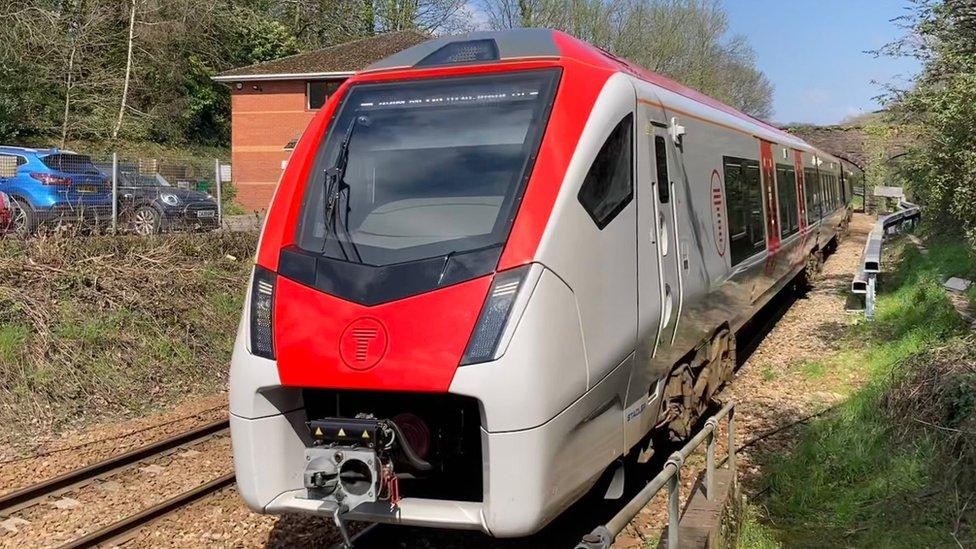Wales' 20mph speed limit: Who is Lee Waters?
- Published
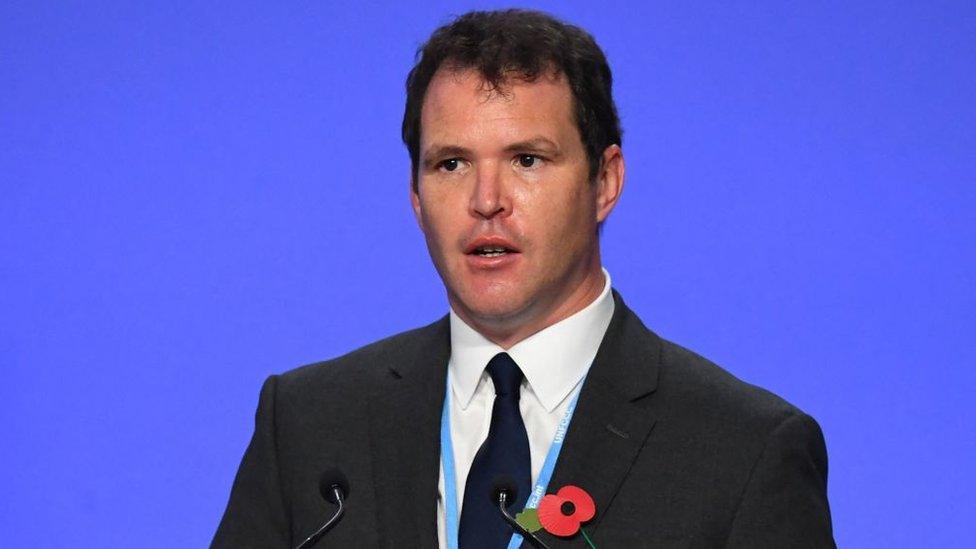
Lee Waters, pictured at COP26 climate summit, has spoken of the difficulties of making change happen
"When it comes to speed limits people tend to see red mist."
These are the words of Lee Waters, deputy climate change minister for Wales, the politician firmly in the driving seat for the policy changing default speed limits in built-up areas of the country to 20mph, and it is fair to say he is not wrong.
The Llanelli MS, who has responsibility for transport as part of his portfolio, has staked his reputation on bringing in what is proving to be a hotly contested policy.
More than 460,000 people so far have signed a petition, external calling for the speed change to be scrapped.
BBC News takes a closer look at the man behind the plan which came into force a month ago.
Who is Lee Waters?
Lee Waters, 47, is originally from Carmarthenshire. After leaving Amman Valley Comprehensive he studied politics at Aberystwyth University and joined the Labour Party.
He took a job with the then Wales Secretary Ron Davies and helped him run his campaign to become Welsh Labour leader in 1998 ahead of devolution before Davies had to stand down after he was attacked on London's Clapham Common by a man he had arranged to meet.
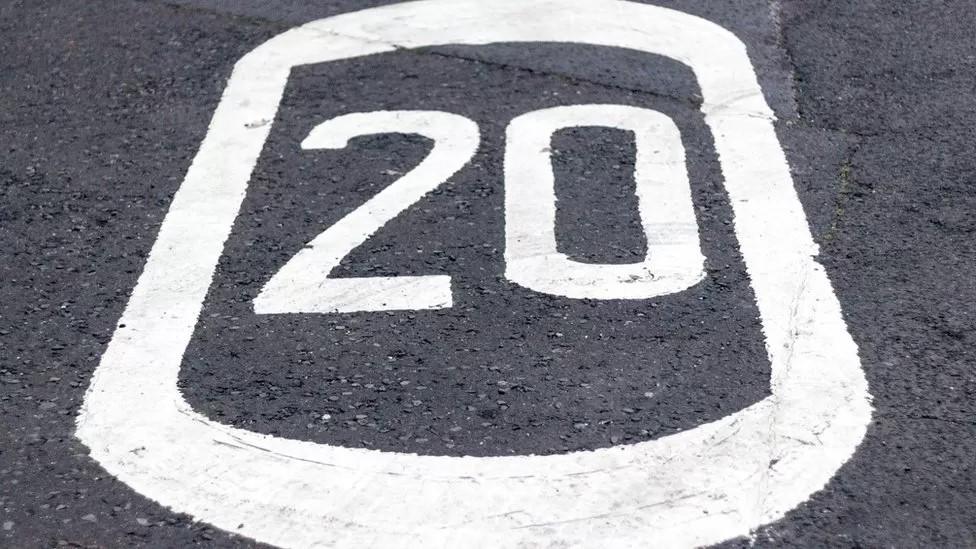
Campaigners argued for years a speed reduction would save lives and raise active travel rates
Mr Waters joined the BBC and worked as a radio news producer for a number of years. He moved across to ITV Wales, eventually becoming their chief political correspondent.
In 2007, he showed the path his future political leanings would take him down by becoming director of Sustrans Cymru, external, the sustainable transport charity, which campaigns on improving pedestrian and cycling infrastructure.
He moved to lead the Institute of Welsh Affairs, external think tank in 2013, before successfully running as Labour candidate for the [then] Welsh assembly seat of Llanelli in his native Carmarthenshire.
Mr Waters is married with two children and splits time between a home in the Vale of Glamorgan and his Llanelli constituency.
Why did he want the 20mph speed limit?
After being appointed as deputy minister for economy and transport in 2018, he was re-appointed in the revamped department as deputy climate minister following Labour's 2021 victory in the Senedd elections.
Mr Waters has become known for his directness on many matters political, and transport is a big one.
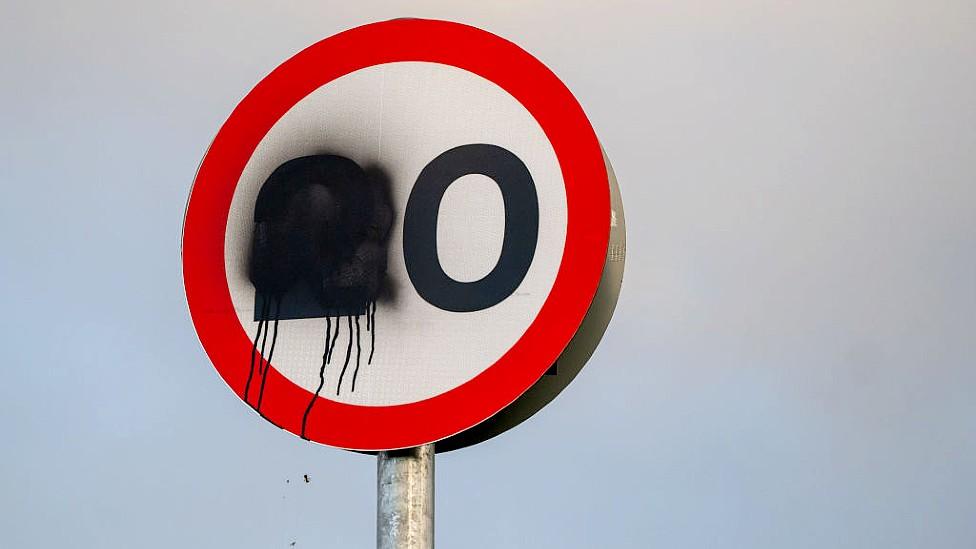
A number of 20mph signs have been vandalised by those who disagree with the default limit
A year after being elected, he spoke against the mooted M4 relief road around Newport to help ease congestion, saying creating new roads just encouraged people to make car journeys they otherwise would not.
Two years later, his position was vindicated when First Minister Mark Drakeford cancelled the £1.6bn scheme, citing cost and its environmental impact.
The speed reduction plan became possible in 2018 after the assembly, as it was then, gained new powers over legislation.
The following year Mr Drakeford gave public backing to the idea during an assembly debate, and by July 2020 initial plans had been presented to the recently renamed Senedd by Mr Waters.
He said 80 children a year were killed or seriously injured on Welsh roads and even a "1% reduction in average speeds" would lead to a probable 6% drop in casualties.
He has stuck to his position, saying after the new rules came into force: "Speeds are already down and, as a result, we can expect to see fewer accidents, fewer casualties, fewer deaths, fewer tragedies, a little bit slower but a whole lot better."
What is the response to the 20mph limit?
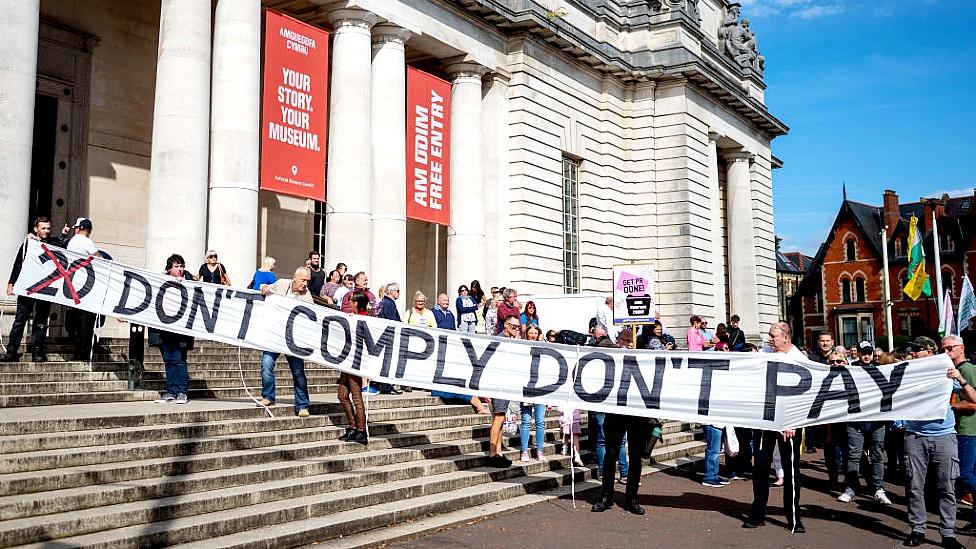
People have joined marches to protest against the new policy as well as signing the petition
In a word, tempestuous.
As mentioned above, an online petition started to reverse the changes is still gathering signatures and is less than 40,000 shy of half a million. That's around nearly one in seven of the Welsh population, and higher if you exclude all those under the legal driving age.
That said, in surveys carried out before the policy was introduced, a majority of people backed speed reduction measures but one Welsh government backed survey had more negative responses than positive to this particular initiative.
This has come at a personal cost to Mr Waters. He faced a vote of no confidence brought by Welsh Conservatives in the Senedd, which was easily defeated by 42 votes to 16.
And, like other Senedd members including Mr Drakeford and the Senedd's presiding officer, Elin Jones, Mr Waters has faced threats from members of the public over the issue.
In a speech to the UK National Transport Awards earlier this month, he said he had had to have security cameras installed in his home, and had a police patrol calling in, as well as being asked to stay away from events in his constituency.
What next for speed limits in Wales?
Mr Waters has not backed down. Just a few days after the 20mph limits were brought in, he announced limits on more roads would be considered in line with Wales's transport strategy, external.
However, he has said there may be some revisions to routes which have switched to 20mph as councils - which still retain the power to designate some roads as 30mph if necessary - reassess their original decisions.

A POSITIVE LIFE: HIV from Terrence Higgins to today
ACID DREAM: The Welsh farmhouse that sparked a revolution of the mind

Related topics
- Published23 April 2024
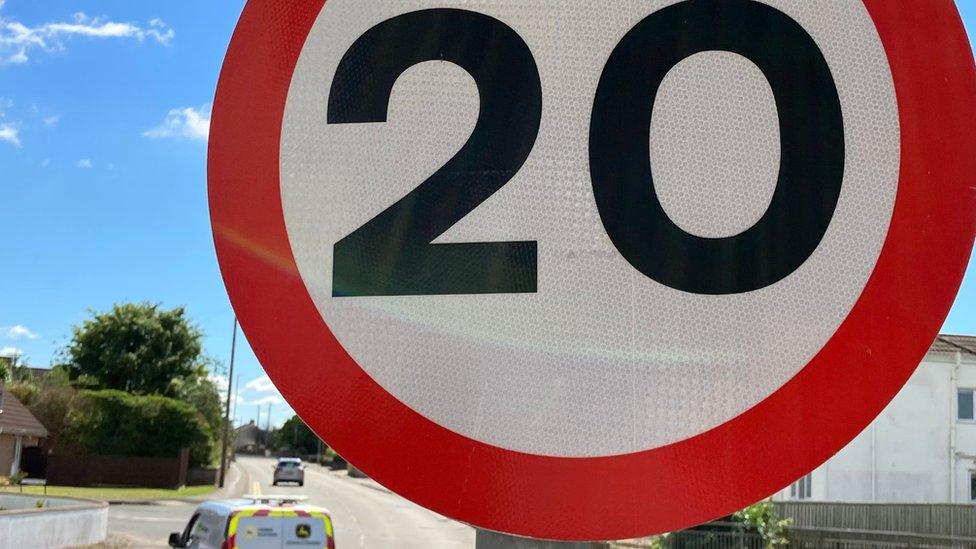
- Published20 September 2023
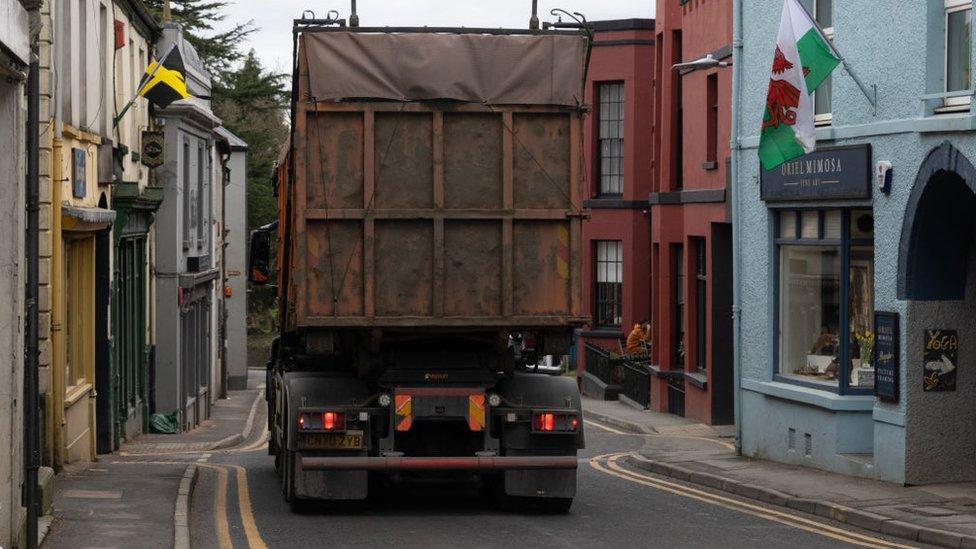
- Published21 July 2023
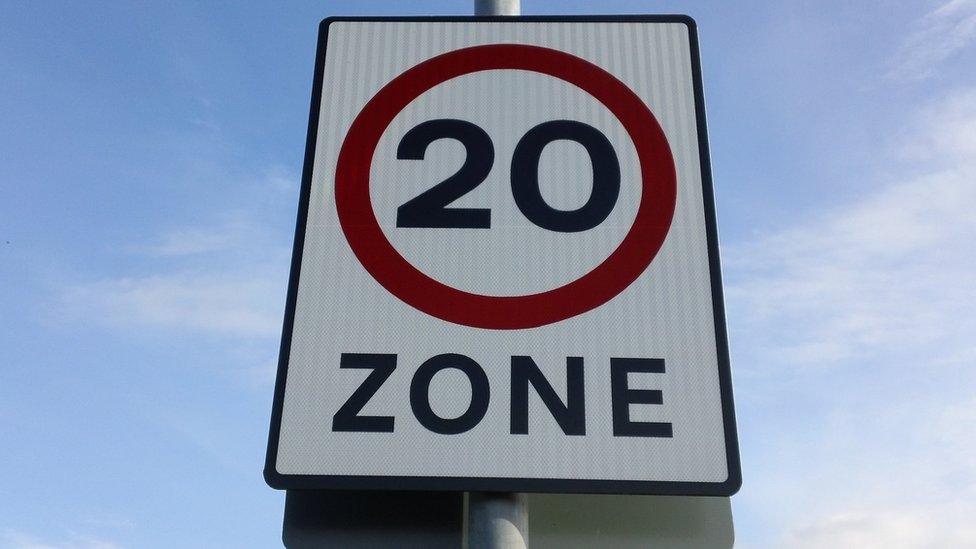
- Published11 March 2022
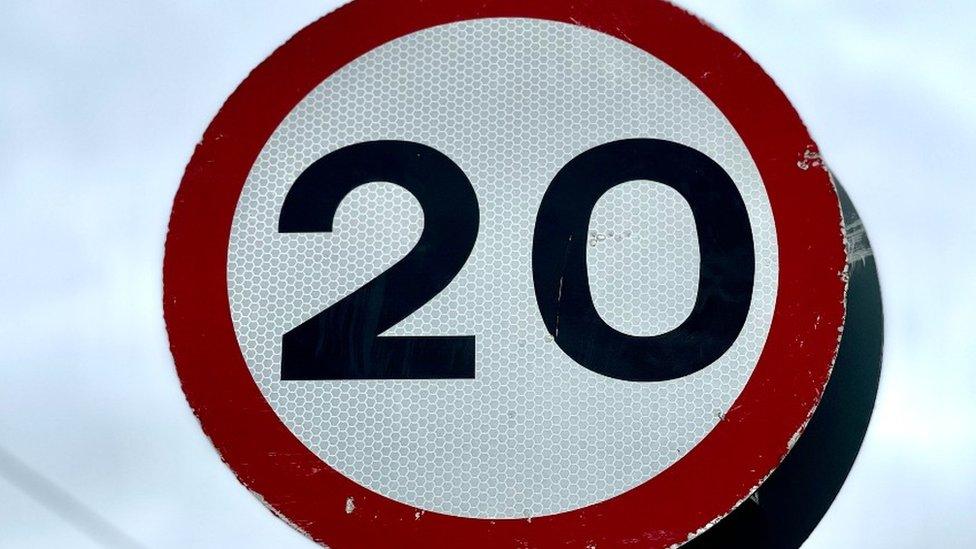
- Published27 September 2023
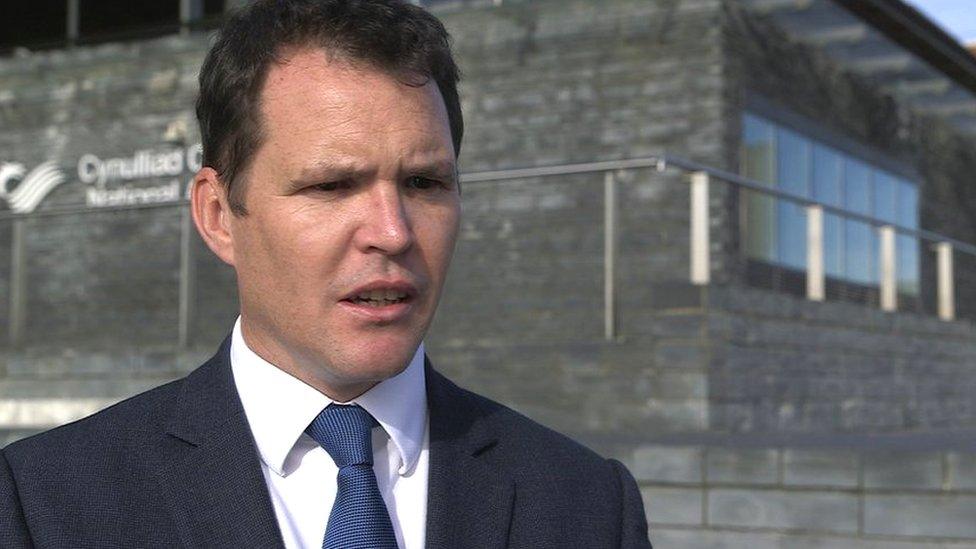
- Published8 August 2023

- Published6 December 2021
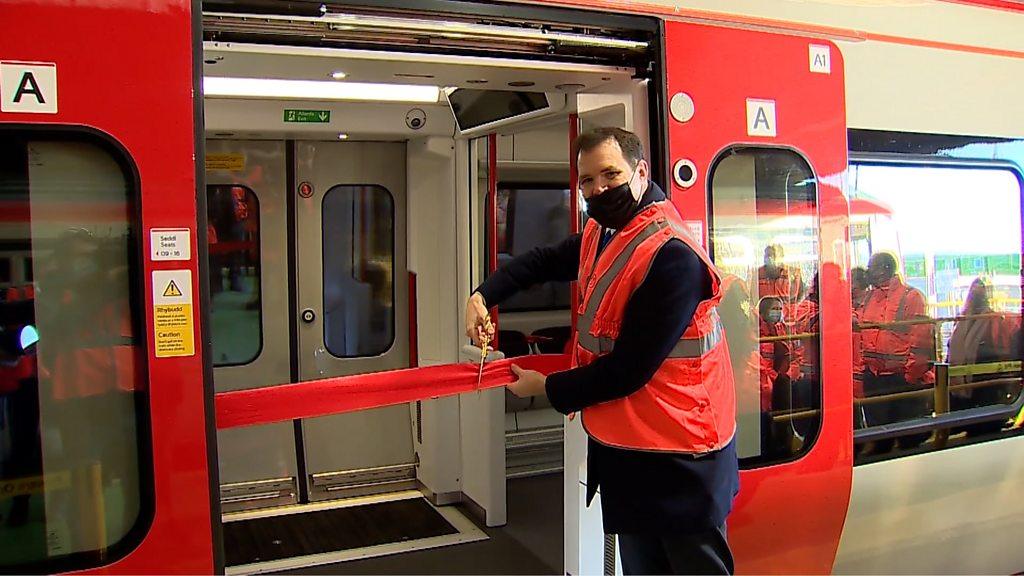
- Published12 November 2021
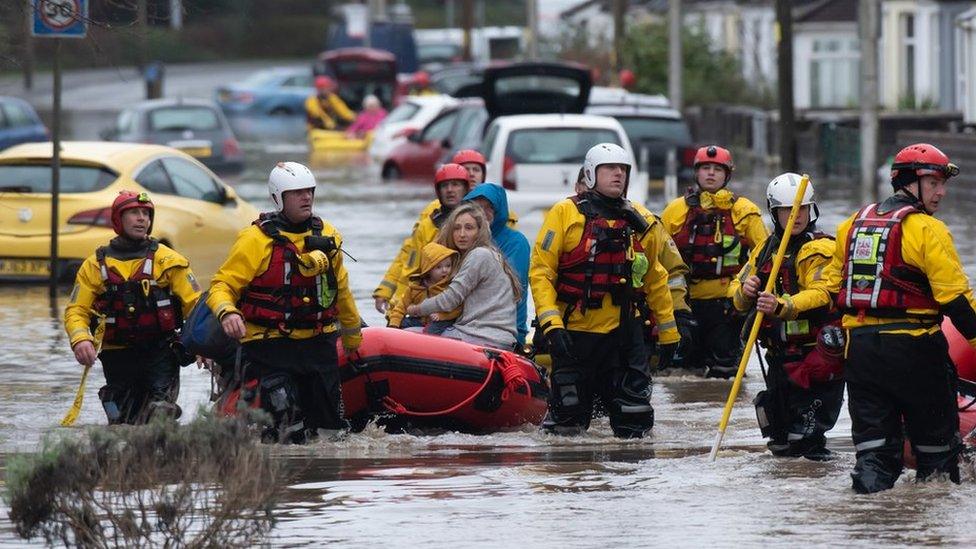
- Published20 April 2023
